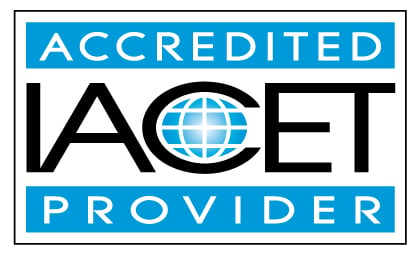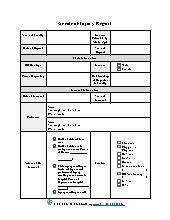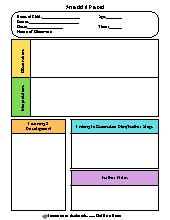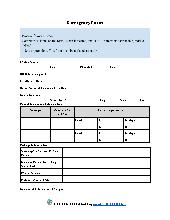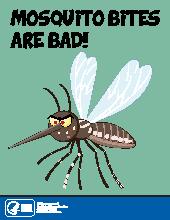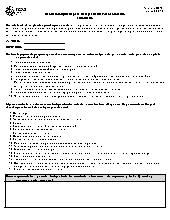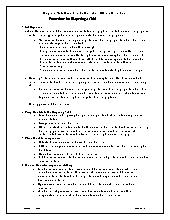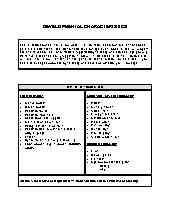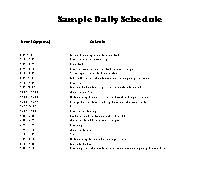24 Hour Texas Pre-Service
Become the caregiver every parent wants for their child, and every center director wants on their team! This 24 hour, self-paced, online training is designed specifically to help you on your way to being that superstar caregiver!
This online only course provides 24 clock hours of pre-service training as required by Rule §746.1305 of the Texas Administrative Code regarding, “What must be covered in pre-service training for caregivers?" and is approved/registered with the Texas Early Childhood Professional Development System (TECPDS), Training ID 21640.
This course also includes the requirements necessary, as part of Rule §746.1305, to provide care for children of all ages, including those younger than 24 months of age.
For more information please refer to the Minimum Standards for Child-Care Centers published by the Texas Health and Human Services Commission, Child Care Regulation.
Texas Core Competency areas covered in this course include:
Area 1:Child Growth and Development 5 hours
Area 2:Responsive Interactions and Guidance 4 hours
Area 3:Learning Environments, Planning Framework, Curriculum, and Standards 4 hours
Area 4:Supporting Skill Development 4 hours
Area 6:Diversity and Dual Language Learners 2 hours
Area 8:Health, Safety, and Nutrition 5 hours
By the end of this training, the learner will be able to:
- Identify strategies for providing appropriate care for infants and toddlers with chronic health issues
- Identify recommended medical and immunization schedules for children birth through age three
- Understand the relation between how material and equipment selection assist with lesson plan development and implementation.
- Identify appropriate practices for teacher- and child-directed activities.
- Explain the consequences for children experiencing negative interactions and vocal tones in the classroom.
- Describe positive discipline strategies to use in the classroom.
- Recognizing and preventing shaken baby syndrome
- Define developmental domains.
- Recognize the importance of a positive and respectful attitude in working with all children and their families.
- Describe common myths and facts about safe sleep for infants and young toddlers.
- Describe the steps teachers should take to identifying challenging behaviors.
- Identify ways to interact respectfully and appropriately in a variety of cultural contexts
- Identify theorists of guidance and discipline
- Explain the possible causes and results of traumatic brain injury in infants and young children.
- Describe the importance of social emotional skill development in children entering kindergarten.
- Define resilience and identify ways it helps young children overcome toxic stressors.
- Demonstrate an understanding of brain development in children birth through age three.
- Identify procedures that will promote a safe environment (indoor and outdoor).
- Identify examples of appropriate activities for different ages.
- Demonstrate understanding of appropriate interaction with infants and toddlers.
- Demonstrate an understanding of how positive guidance promotes sound social and emotional development.
- Identify appropriate practice for the identification, prevention, and treatment of communicable diseases in childcare.
- Demonstrate an understanding of approaches to learning
- Identify appropriate practices communicable diseases/illnesses and immunizations and their schedules in child care setting
- Give examples of strategies caregivers can use to ensure safe sleeping habits and the prevention of SIDS/SUIDS in infants.
- Give examples of strategies to prevent traumatic brain injuries in infants and young children.
- Identify strategies in promoting sound health and safety principles for in child care.
- Identify strategies to ensure appropriate infant and toddler supervision.
- Identify the different learning concepts related to block play.
- Identify stages and milestones of development for ages 1 to 5
- Describe how materials, equipment, environment, and staff meet the individual needs for children
- Distinguish appropriate indoor safety concerns
- Define social emotional development in young children
- Describe the meaning of positive discipline in the classroom.
- Criteria to earn CEUs:
- Certificates are awarded when the following criteria have been met by the learner:
- Class has been paid in full
- All material has been reviewed
- All review questions and final test have been completed with a passing score of 80% or higher.
- Learning Assessment Method:
- Learners will be assessed through questions after every section is completed. Learners will not be
allowed to proceed to the next section of the training until all questions have been answered correctly.
Learners will be presented with a final test composed of true/false and multiple choice questions.
Upon successful completion of the training, learners will receive their certificate by email.
- Learning Methodology:
- Online material will be presented in the form of slides,
accompanied with speech. Videos will be used to demonstrate ideas and concepts. Charts and tables
will be used for illustration.
- Logistics/Required Technology:
- A stable internet connection is required for the completion of this course. Users are highly encouraged to take their online course on Google Chrome on either a laptop or desktop computer. Speakers and/or headphones are also required to hear speech.
- Payment Policy:
- Payments need to be made in full. No refunds will be issued after starting the class.
- Proprietary or conflict of interest disclosure:
- Unless otherwise stated in the course description none of H & H subject matter experts and editor has any conflict or proprietary interests related to the material they prepared in this course.
- Support Services:
- Please visit our contact us page
You are purchasing a session of an online training that includes online assessments. Your certificate will be emailed to you once you pass the final exam with a passing grade of 80%.
Your certificate will bear the name you provided to us when you signed up. For support and questions regarding the material presented in this class please contact us at info@childcareed.com. Please consult our frequently asked questions page for other questions or feel free to contact us.
No prerequisites are required for the completion of this course.
Hours breakdown
CD/ SN/ PRO/ CUR/ HSN/ COMTopics / Categories
Group AdminInfant/ Toddler Educators
Preschool Educators
School-Age Providers
Basic
Health, safety and nutrition
Curriculum and Environment
Professionalism
Child development
Observation and Assessment
Special Needs
- Need Annual Training Hours Texas?
- Texas 24 Hour Pre-Service Training for Child-Care Workers
- Texas Pre-Service Training
- Required trainings for child care providers in Texas
- Texas Career Starter Bundle
- 3 Things New Teachers Need To Know About Teaching Preschool
- Savings on Annual Requirements
- Back to School!
- Texas Annual Abuse and Neglect Training
- Texas 8 hour Pre-service Training
- 24 hour Texas Pre-service Training
- Navigating with Limited Resources: Support for Texas Child Care Facilities
- How to Start a Daycare with Success
- How Old Do You Have to Be to Work at a Daycare?
- How Can Texas Child Care Providers Save Big on Annual Training?
- 🍼📋 What Do You Need to Work in Childcare in Texas?
- 📚 Which Trainings Are Required for Childcare Staff in California?
- Free Online Childcare Training In Texas
- How To Get a Daycare License In Texas
- How does the ChildCareEd–BakerRipley contract make teacher training easier and more affordable for Texas childcare programs?

